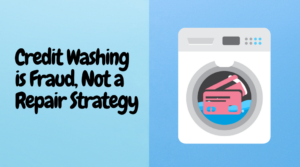Question I am not late in any of my credit card payments and have never been in over 20 years. I have revolving balances with my credit cards. I reached out to them directly to ask if they would negotiate and settle for a lower balance, if I paid this lower balance in full immediately.
I started by calling Customer Service and ask for their Collections Departments. I found that they will not talk to you and provide options, unless you are seriously delinquent or in imminent default status. Basically, when your credit is already messed up.
However, with a couple of my cards, their Collections Department agreed to settle at 50% of the balance if I paid the agreed amount in full in 30 days (without experiencing hardship or being late). I was told that any amount “forgiven” over $600 will be 1099’d to me at the end of the year as income.
So, my question to your experts is: If my credit is clean (no lates), how will it be impacted if I do such settlement with my credit card companies? Will it show in my credit report as paid in full? Pay as agreed? Settled? And again how will it impact my credit? Bottom line, is it worth doing it or not? and depending on the negative impact….for what minimum amount would it be worth doing? Thanks!
Answer: Settling credit accounts for less than what is owed, when you have no previous late payments, should not impact your credit score unless the creditor reports the account as “Settled.”
It is not uncommon for a creditor’s “Collection Department” to offer a 50% settlement amount as with your situation; however, that one-time payment will more than likely show up on your credit reports as “Settled.” If you plan to get new credit in the future other lenders may view you as a risk and totally ignore your past pristine payment history because you “settled” accounts for less than the amount owed.
Debt settlement can be risky
If you stop making payments in an effort to get your credit card company to offer a settlement, your credit card company can sue you in collections, obtain a judgment, and garnish your wages and bank accounts. Even if you notify the creditor of your intent to settle, nothing legally stops the creditor from collecting.
The bottom line is your credit rating depends on what you negotiate prior to settling the account. If the credit card company reports “Settled,” “Not Paid As Agreed” or any other delinquent notation, it will have a negative impact on your credit score. It is up to you to determine whether it is worth it or not.
How the creditor reports your account depends on what you negotiate prior to settlement. There are no set Fair Credit Reporting Act rules which credit card companies must adhere to when settling accounts for less.
Request the creditor report the settled accounts as “Paid” or “Paid as Agreed” this would be your best and safest route in protecting your credit rating. It may take a little wrangling on your behalf, and speaking to someone other than the “collection department, like an executive, in order to get the “Paid” or “Paid as Agreed” listing. Just remember all negotiations and agreements must be in writing, prior to paying anything on the accounts.
Debt settlement creates income tax liability
When a credit card company forgives any amount of the debt, the IRS and your state government will perceive the debt forgiveness as income. The difference between your original balance and the settlement amount is taxable income, and you will have to pay taxes on it.
In addition, when you receive the 1099 form, seek advice immediately from your accountant or tax preparer. You want to make sure the tax preparer or accountant is knowledgeable in dealing with canceled debt from creditors. Not all canceled debt has to be claimed as income.
You may qualify for one of several exclusions that allow you to reduce taxable income from canceled debts. The Internal Revenue Code lists several exclusions from reporting the income on your tax return. Your tax preparer should be consulted as soon as possible once you receive the 1099 form. Good luck to you.


















